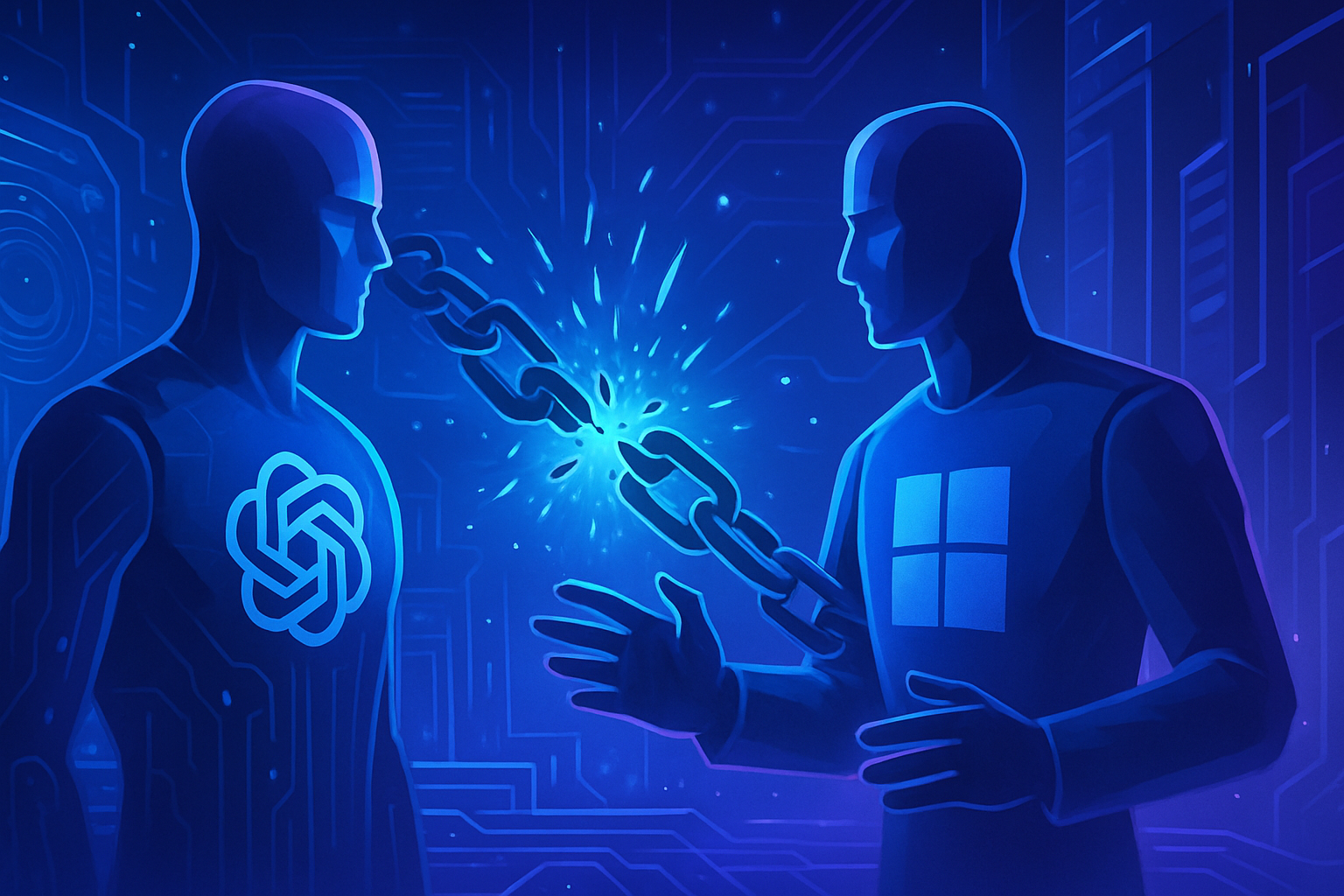OpenAI and Microsoft are considering a breakup of their alliance. Rumors are emerging about the imminent separation of these tech giants, after six years of synergy. The absence of collaboration could have significant consequences for artificial intelligence, particularly for Microsoft’s Copilot assistant which relies on OpenAI technology. This change looms as discussions about potential anti-competitive behaviors animate the spheres of influence of both companies. The technological constellation could thus experience an unprecedented upheaval, affecting their respective ecosystems.
Potential breakup of the collaboration between OpenAI and Microsoft
OpenAI and Microsoft, two tech giants with cross-investments, are seriously considering ending their collaboration. This announcement emerged following a report from the Wall Street Journal, highlighting a likely separation that could leave Microsoft’s Copilot system without its main AI engine.
A story of strategic allies
For six years, Microsoft has relied on OpenAI’s expertise to integrate generative AI technologies into its products. The AI Copilot assistant, integrated into Windows 11 and Bing, is the result of this symbiotic relationship. The collaboration has enabled notable advances, particularly with the introduction of GPT-4o, OpenAI’s innovative technology that now powers these tools.
Legal and antitrust issues
As negotiations progress for a separation between the two companies, internal discussions have also emerged at OpenAI. The organization’s leaders are considering the possibility of accusing Microsoft of anticompetitive behavior. These accusations could intensify an already tense confrontation between these two major players in the innovation landscape.
Consequences for the AI market
A sudden separation could be a source of complications for customers using Copilot. Extracting existing integration elements is likely to be a delicate process, thus disrupting a rapidly expanding niche market. This potential gap left by OpenAI could also encourage other companies to double their efforts to compete.
Reactions from company representatives
Microsoft and OpenAI have not yet publicly commented on the information reported by the press. This leaves a cloud of uncertainty over the future of their products and the strategic direction of each company. This development comes at a time when alliances are forming elsewhere in the sector, as evidenced by the connection between IBM and Roche to anticipate blood sugar levels through AI here.
Recent innovations and investments
Meanwhile, other announcements related to fundraising indicate a growing interest in AI. TamTam, for example, recently raised 3 million euros to integrate AI into the commercial sector, illustrating the ongoing attractiveness of this expanding field here.
Acquisitions and technological future
OpenAI has also strengthened its market position in recent months through strategic acquisitions. The recent acquisition of a technology startup by OpenAI for 64 billion dollars is an indicator of its ambition here.
Evolution of AI-human interactions
As the sector seeks to balance innovation with human needs, an approach to AI that takes into account human decision-makers is emerging. Methods developed in this spirit open new avenues for collaboration between technology and governance here.
Future technologies
Finally, discussions around AI continue to evolve rapidly, with the launch of new technologies, such as supersonic AI that is transforming factories at an unprecedented pace here.
Frequently asked questions about the possible separation between OpenAI and Microsoft
What is the context of the separation envisaged between OpenAI and Microsoft?
OpenAI and Microsoft have maintained a close relationship for six years, during which Microsoft integrated OpenAI technology into its products, notably in the AI Copilot assistant. Recently, negotiations for a separation have emerged.
How could this separation affect Microsoft’s AI Copilot assistant?
If OpenAI and Microsoft effectively end their partnership, it could make the integration of OpenAI technologies into Copilot difficult, potentially affecting its functionalities.
Is OpenAI considering pursuing legal action against Microsoft?
Discussions have taken place within OpenAI regarding the possibility of accusing Microsoft of anti-competitive behavior during their collaboration, but no official decision has been announced.
What technologies does OpenAI currently provide to Microsoft?
OpenAI provides Microsoft with generative artificial intelligence technologies, notably through the GPT-4 model, which is integrated into Copilot and other Microsoft products.
What are the implications for Microsoft users who use Copilot?
Microsoft users could encounter uncertainties regarding the stability and evolution of Copilot if the partnership with OpenAI ends, which may also affect future updates and functionalities.
Are there potential legal consequences following this separation?
Yes, if the partnership ends, legal implications could arise, especially if an anti-competitive accusation is made by OpenAI against Microsoft, leading to conflicts over the rights to use technologies and data.
Which Microsoft products could be impacted by this separation apart from Copilot?
In addition to Copilot, other products like Bing and potentially other applications integrating OpenAI technology could be affected, which could reduce the AI performance and capabilities available to users.






